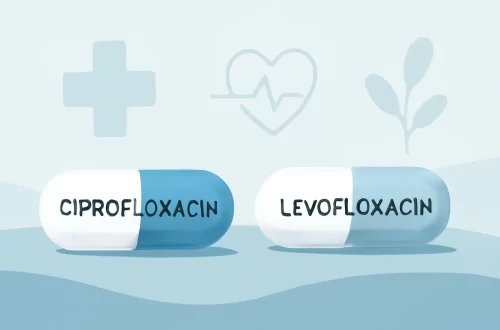
Best Food Options for a Healthy and Happy Border Collie
Border Collies are renowned for their intelligence, agility, and boundless energy. As one of the most active dog breeds, they require a diet that not only meets their nutritional needs but also supports their high-energy lifestyle. A well-balanced diet is essential for maintaining their health, enhancing their performance in various activities, and ensuring their overall happiness.
Understanding the dietary requirements of a Border Collie is crucial for any owner. These dogs thrive on a mix of proteins, fats, carbohydrates, vitamins, and minerals that fuel their active lives. Additionally, as working dogs originally bred for herding, they need food that can sustain their stamina and support their cognitive functions.
While choosing the right food can be overwhelming with the plethora of options available, knowing what to look for can simplify the process. This article delves into some of the best food options tailored specifically for Border Collies, helping you make informed decisions that will contribute to your furry friend’s health and happiness.
High-Quality Proteins: The Foundation of a Healthy Diet
When it comes to fueling a Border Collie’s active lifestyle, high-quality proteins are essential. Protein is crucial for muscle development, repair, and overall bodily functions. It supports the immune system and is vital for energy production, especially in such an energetic breed.
Look for dog foods that list real meat as the primary ingredient. Beef, chicken, lamb, and fish are excellent sources of protein that provide essential amino acids needed for growth and maintenance. It’s important to avoid foods that contain meat by-products or fillers, as these can be less nutritious.
In addition to traditional protein sources, consider incorporating fish into your dog’s diet. Fish, such as salmon and sardines, are not only rich in protein but are also high in omega-3 fatty acids. These fatty acids promote healthy skin and a shiny coat, which is particularly beneficial for Border Collies, known for their striking fur.
Another option is to include lean cuts of meat in their homemade meals. If you choose to prepare food at home, ensure that you balance the protein with appropriate carbohydrates and vegetables. Always consult with a veterinary nutritionist to create a meal plan that meets all the nutritional needs of your Border Collie.
It’s also worth noting that some Border Collies may have food sensitivities or allergies. If you notice signs of discomfort, such as itching or digestive issues, consult with your vet to determine if a protein source may need to be eliminated or replaced.
Healthy Fats for Energy and Coat Health
Fats are another critical component of a Border Collie’s diet, providing a concentrated energy source that is especially important for this active breed. Healthy fats not only supply energy but also play a vital role in maintaining a healthy coat, promoting brain function, and ensuring overall well-being.
When selecting dog food, look for sources of healthy fats such as chicken fat, fish oil, or flaxseed oil. These fats are known to provide essential fatty acids that support cognitive function and reduce inflammation, which can be beneficial for highly active dogs prone to injuries.
It’s essential to strike a balance with fat intake; too much fat can lead to obesity, which can exacerbate health issues. Consult your veterinarian to determine the appropriate amount of fat for your Border Collie based on their age, weight, and activity level.
In addition to commercial dog food, you can also include natural sources of healthy fats in your dog’s diet. For instance, adding a small amount of olive oil or coconut oil to their meals can enhance flavor and provide additional nutrients. These oils can be beneficial for skin health, reducing dryness and irritation.
Always ensure that any dietary changes are gradual. Introducing new foods too quickly can upset your dog’s digestive system. Monitor your Border Collie for any adverse reactions when adding new fat sources, and consult your vet if you have any concerns.
Incorporating Fruits and Vegetables for Added Nutrients
In addition to proteins and fats, incorporating fruits and vegetables into your Border Collie’s diet can provide essential vitamins, minerals, and antioxidants. These nutrients play a significant role in promoting overall health, strengthening the immune system, and offering a variety of flavors and textures that can keep mealtime exciting.
Some suitable fruits for Border Collies include blueberries, apples, and bananas. Blueberries are particularly rich in antioxidants, which can help combat oxidative stress and support heart health. Apples, with their high fiber content, can aid digestion, but make sure to remove the seeds and core, as they can be harmful. Bananas provide potassium and are a great treat in moderation.
When it comes to vegetables, consider options like sweet potatoes, carrots, and green beans. Sweet potatoes are an excellent source of complex carbohydrates and beta-carotene, which promotes healthy vision. Carrots are low in calories and high in fiber, making them a great snack that can also help maintain dental health. Green beans provide essential vitamins while being low in calories, making them an excellent filler for dogs who need to lose weight.
While fruits and vegetables can be beneficial, not all are safe for dogs. Ensure that you research any new food before introducing it to your dog’s diet. Monitor for any signs of allergies or gastrointestinal distress, and consult with your veterinarian if you have any concerns about specific fruits or vegetables.
The Importance of Hydration for Active Dogs
While food is a vital component of your Border Collie’s diet, hydration is just as crucial. Active dogs require ample water to maintain their energy levels and overall health. Dehydration can lead to serious health issues, especially for a breed that exerts so much energy.
Ensure that your Border Collie has access to clean, fresh water at all times. During hot weather or after vigorous exercise, their water needs may increase, so be vigilant about their hydration. You can also monitor their hydration levels by checking their skin elasticity and ensuring they are not lethargic or overly panting.
Some owners choose to incorporate wet food into their dog’s diet to help with hydration. Canned dog food generally contains more moisture than dry kibble, which can contribute to your dog’s overall water intake. However, it’s essential to choose high-quality wet food that meets their nutritional needs.
If you notice that your Border Collie is not drinking enough water, consider adding a splash of low-sodium chicken broth to their water bowl to encourage them to drink more. Always avoid giving your dog any flavored waters or drinks that contain sugar or artificial ingredients.
In addition, during long walks or play sessions, carry water with you to ensure your dog stays hydrated. Providing water breaks can help prevent overheating and ensure that your Border Collie remains in peak condition during their activities.
—
Remember, this article is not a substitute for professional medical advice. Always consult with your veterinarian for any health-related concerns or dietary changes for your Border Collie.




